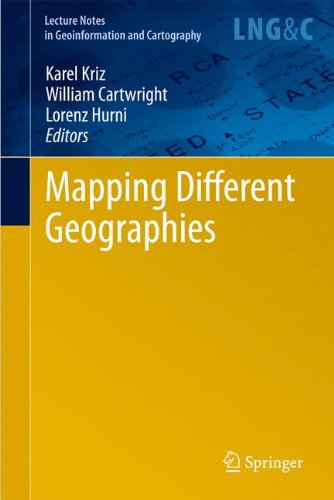

Most ebook files are in PDF format, so you can easily read them using various software such as Foxit Reader or directly on the Google Chrome browser.
Some ebook files are released by publishers in other formats such as .awz, .mobi, .epub, .fb2, etc. You may need to install specific software to read these formats on mobile/PC, such as Calibre.
Please read the tutorial at this link: https://ebookbell.com/faq
We offer FREE conversion to the popular formats you request; however, this may take some time. Therefore, right after payment, please email us, and we will try to provide the service as quickly as possible.
For some exceptional file formats or broken links (if any), please refrain from opening any disputes. Instead, email us first, and we will try to assist within a maximum of 6 hours.
EbookBell Team

4.7
46 reviewsThis book is the outcome of the work of contributors who participated in the wo- shop “Mapping Different Geographies (MDG)” in February 2010, held in Puchberg am Schneeberg, Austria. This meeting brought together cartographers, artists and geoscientists who research and practice in applications that focus on enhancing o- to-one communication or develop and evaluate methodologies that provide inno- tive methods for sharing information. The main intention of the workshop was to investigate how ‘different’ geographies are being mapped and the possibilities for developing new theories and techniques for information design and transfer based on place or location. So as to communicate these concepts it was important to appreciate the many contrasting meanings of ‘mapping’ that were held by workshop participants. Also, the many (and varied) viewpoints of what different geographies are, were ela- rated upon and discussed. Therefore, as the focus on space and time was embedded within everyone’s felds of investigation, this was addressed during the workshop. This resulted in very engaging discourse, which, in some cases, exposed the restrictions that certain approaches need to consider. For participants, this proved to be most useful, as this allowed them to appreciate the limits and restrictions of their own approach to understanding and representing different geographies. As well, the workshop also was most helpful as a vehicle for demonstrating the common ground of interest held by the very diverse areas of endeavour that the workshop participants work within.